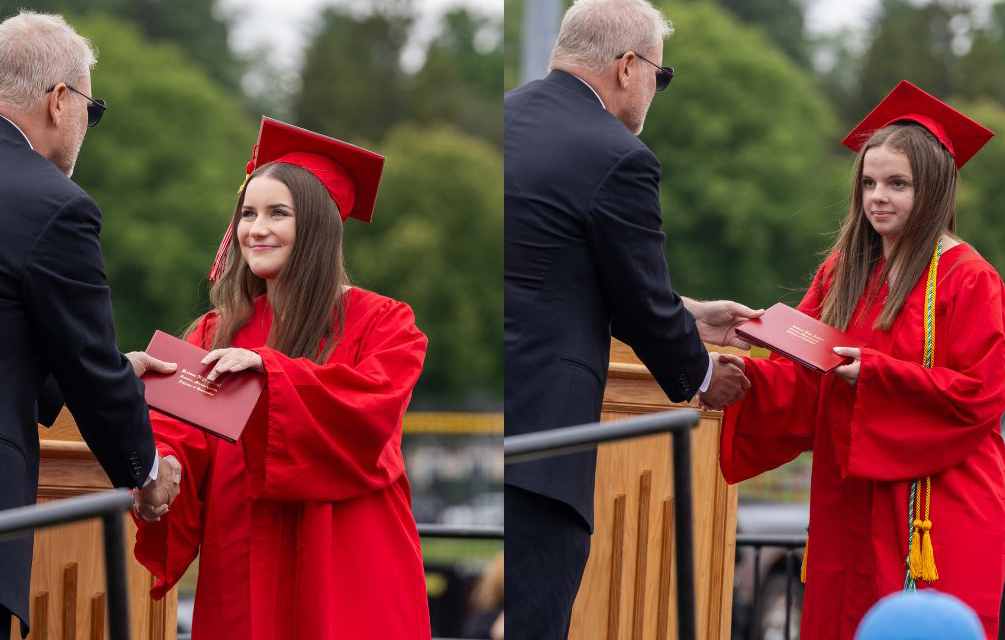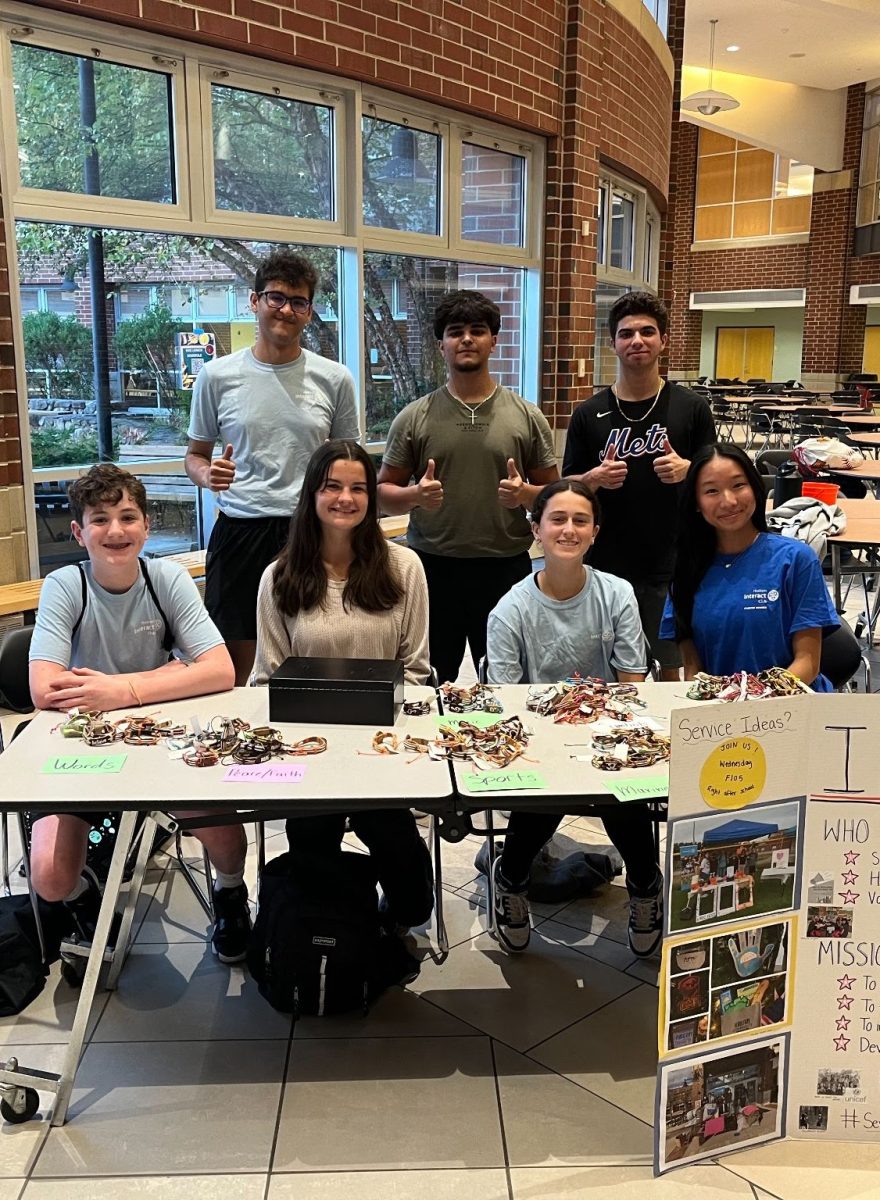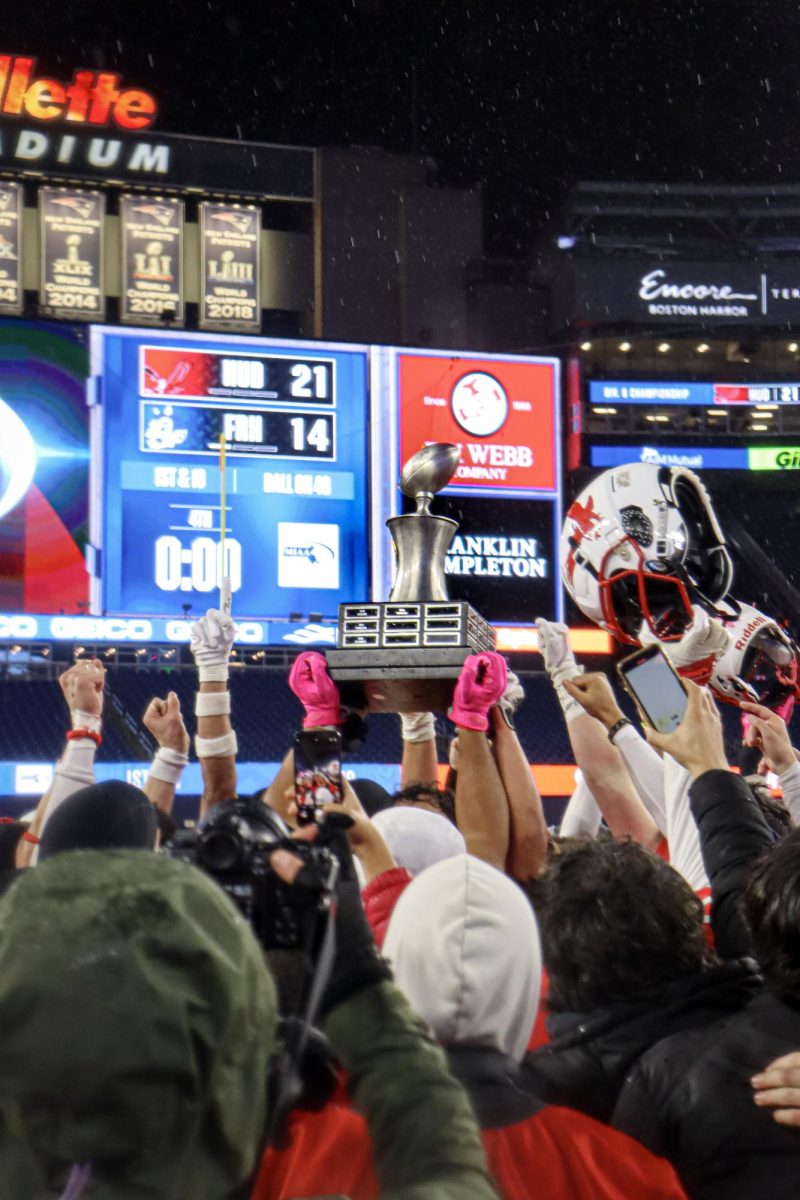by Jack Snow
For a number of years, Twitter has served as a great way to enhance communication. Broadening from student-to-student interaction, HHS, in particular, has now seen a growing popularity in Twitter’s opportunities for teacher-to-student communication. This has been seen most often as a way for coaches to keep in touch with players, providing updates on games, practices, and general notifications. Most recently, administration has jumped on the bandwagon and made accounts of their own, people like Principal Brian Reagan and our superintendent Dr. Kevin Lyons.
So far, this has shown to be nothing but positive for our school; but as students and faculty continue to interact with one another, there is always the danger of crossing the line. Determining the rights and limitations of speech online is always a touchy subject, as we all tend to forget how little privacy we have on social media. The words we post are often seen by many more than we think, which can sometimes lead to very difficult issues.
Two students at HHS recently experienced this first-hand and were left feeling outraged. Both individuals have chosen to remain anonymous, and they will be referred to as Heather and Mark. For these two students, the situations were the same; they had both posted explicit tweets in regards to their teachers who eventually saw them and confronted the students. This caused quite a stir from Heather and Mark, who ultimately felt violated by their teachers’ actions.
“I did not think that I would get in trouble because I never thought teachers would take time out of their day to stalk our Twitters,” says Heather. “The teacher sat me down and talked to me about my tweets, and I was honestly just creeped out that she had taken the time to go through my Twitter. I did not think that it was her business, and it is my freedom of speech.”
Mark felt the exact same way, confused and upset with the situation at hand.
“It is MY Twitter, and I didn’t think my teacher would creep on me,” says Mark. “Initially, I thought that it was funny and ridiculous.”
Both students were not necessarily punished; Heather and Mark each had conversations with their teachers about the importance of being careful about online speech and had their parents notified, but that was it. Either way, neither student could get over how upset the situation had made them.
“I still think it is weird for teachers to look at their students’ social media,” says Heather. “My parents were also really uncomfortable and aggravated that the teacher had taken the time out to do this. My mom said it just was not appropriate. I don’t understand why teachers even look through our social media. I think some teachers feel compelled to look at our Twitters because they have doubts and speculations about us. In the future, I would like teachers to stop looking at Twitters if there is no reason or intent to.”
For Mark, there is a very fine line between life inside and outside of school that should never be crossed.
“Students’ personal lives and what they say outside of the classroom have nothing to do with teachers,” says Mark. “They have no right to look through our social media. My parents also think that it’s inappropriate for teachers to be looking at their students’ social media. I think my teacher needs to mind his/her own business and that can be accomplished by backing off and not being so nosy. Teachers just need to stop trying to meddle into students’ personal lives.”
Reaction from students besides Mark and Heather showed similar feelings. In a recent survey given out to 150 students, 79% felt that teachers should not have a say on student social media accounts, while 21% felt that they should. To be more specific, that 79% feels that what a student posts outside of school should have nothing to do with their life in school.
Although the majority of the student body has shown to feel this way, some of the teachers and faculty obviously feel differently.
English teacher Jen Wallingford has had to deal with situations like Heather and Mark’s in the past (but not their cases in particular). As a field hockey coach at HHS, Wallingford had created a Twitter account of her own as a way to interact with her athletes on a coach-player basis. Eventually, she came across some not-so-nice tweets about her posted by two of her students and felt she had to act.
“I have made several students aware that I’ve seen the things they’ve written. Crass, cruel, or careless things,” says Wallingford.
When it came to dealing with students for their words online, however, Wallingford did not punish them.
“It’s not my place to punish a student because of social media use,” says Wallingford. “ I just feel as though, based on what I see out there, maybe someone should remind these students that this is a public forum, a historic record, and that they should be more considerate and careful before publishing something that could hurt others or, eventually, themselves.”
Wallingford could see how upset these students were at how the situation was unfolding.
“I think one student was surprised that I saw she had written “F*** off” to the homework reminder she received (because she signed up for the service),” says Wallingford.
Although she cannot speak for all students, Wallingford had some ideas as to why some seem to freely express views on social media.
“I think students are teenagers whose frontal lobes are not yet developed,” says Wallingford. “They often act without thinking. On Twitter, they whine and complain about homework; they brag about not having read what is required. I’m not naive; I know students say all those things to each other and have for years. I just think they shouldn’t be publishing these complaints, boasts, or insults in a permanent and public place.”
Despite the outcomes of this situation, not all interaction between students and teachers on Twitter has been negative.
Civics teacher Mary Beth Ryan doubles as the varsity softball coach and created a Twitter account last year as a way to interact with her players.
“It’s great for communication between my players and me,” says Ryan. “I usually make announcements using players’ Twitter names or with familiar hashtags. They can favorite the tweets, comment, or retweet my messages. I also like it because it allows me to celebrate individual and team successes in a public way. I realized that getting your name mentioned in a tweet had more of a morale impact on my players than getting their name or photo in some newspaper. When I was a player, the newspaper was where it was at. Now it’s Twitter! Finally, I am able to support other sports teams because I follow the other Hudson coaches’ accounts. It helps us form a social media community that carries over into real life.”
While using the account, Ryan has not seen any negative activity going on with her players, mainly because she tries to avoid looking at posts unless they are relevant to her. Still, after hearing about the recent occurrences of students mistreating social media, Ryan felt that, like many of her colleagues, students must be mindful of what they say online.
“If something is in the public domain, they need to decide whether it’s something they want EVERYONE to see. They have to remember that their audience is the whole world and they should tread carefully.”
With the HHS community interacting so much on social media, there posed an unclear question; what is our school’s policy when it comes to technological communication?
Principal Brian Reagan says that the administration at HHS has had to deal with cases like the ones of Heather and Mark before, mainly just student vs. student matters. According to Reagan, the procedure for these issues are the same for every teacher and faculty member.
“We always advise teachers to bring issues to us, since we don’t want to put them in awkward positions and have to confront students,” says Reagan.
Dealing with these matters has been no easy task for Reagan.
“We have definitely seen more of these issues in recent years,” says Reagan. “The evolution of technology has really opened the doors for cyberbullying; there’s just a different feeling online and kids seem to think that their actions will not come with consequences. Student issues altogether have done a complete 180 from when I started working 15 years ago, especially in more recent years.”
After hearing about the cases like Heather and Mark’s, Reagan offered his own take on the matter.
“Obviously everyone has the right to free speech, but eventually it crosses the line to the point of true character defamation,” says Reagan. “As a principal, it is my job to protect all of my students and address situations that endanger this accordingly. However, I do not believe students and faculty have any reason to be policing students’ Twitter accounts, if that is what has been happening lately. I would also like to advise students to remember that what they post online lives on forever; it never goes away. I also know for a fact through conversations with colleges that administration offices search for students’ profiles. Their posts really have a large impact on others as well as themselves, and I feel students must be mindful of this.”







Joshua Otlin • May 2, 2014 at 9:58 am
Well done, Jack. I appreciate your efforts to help readers understand multiple sides of this complicated and important issue.
As with almost everything in life, “the golden rule” (to treat others the way you want to be treated) is the best guide. Faculty and staff are rightfully upset when students make derogatory comments about them in a public forum and faculty and staff are right to view social media posts as public forums. All our students should know that it is absolutely false to assume that social media communications are private. I have seen many cases in recent years in which communications intended to be private were later publicized in a manner that caused great stress for everyone involved. Students and parents would be rightly outraged if they learned that a teacher was posting derogatory comments about them via social media.
I don’t believe faculty and staff are policing students’ social media accounts but it is possible that some are doing so. Faculty and staff typically become aware of specific content when someone alerts them to it or when the student posts the comment in a manner so that it comes directly to the adult’s attention.
In my work as an assistant principal, I’ve reviewed students’ social media posts as part of investigations into issues such as bullying, harassment, threats, vandalism, and drug-dealing in school. In every case I can recall, such reviews have always been in response to information provided to me or a colleague by a student or parent.